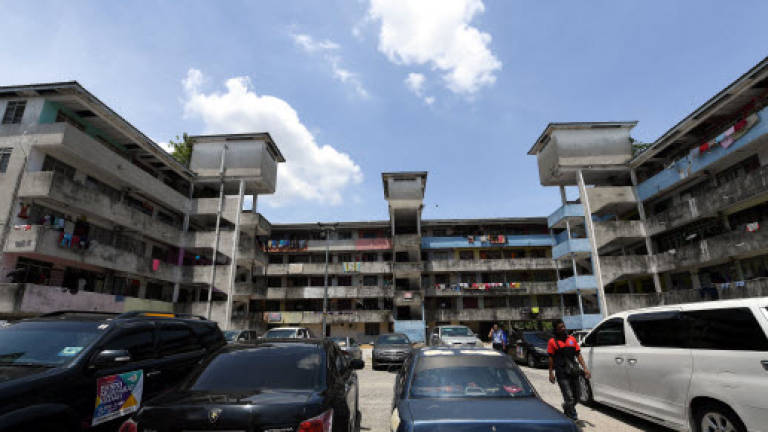A third of households in KL below minimum living standards

PETALING JAYA: Almost a third of households in Kuala Lumpur were surviving below a minimum standard of living in 2016, according to Bank Negara Malaysia.
In its Annual Report 2017 released today, the central bank introduced the concept of "living wage" which states the minimum income needed by households to participate in society, opportunity for personal and family development and freedom from severe financial stress.
Its findings from conducting focus groups and price levels in 2016, showed that a family with two children will need a minimum of RM6,500 a month, while a single person RM2,700, to afford a minimum standard of living in Kuala Lumpur.
Compared with the median household income in Kuala Lumpur in 2016 of RM9,073, it was found that up to 27% of households in Kuala Lumpur were earning below the living wage.
The concept introduced by the central bank in its 2017 Annual Report looks to show the minimum income needed by households beyond the basics of food, clothing and shelter, that allows for social participation and financial security.
On social participation, the acceptable minimum includes being able to afford a trip to visit family and friends during festive seasons and having the ability to occasionally purchase gifts for family members, such as during birthdays or visits. In addition financial strain should not be a source of persistent stress.
In terms of household type, a larger share of single-adult households and couples with two children were earning below the estimated living wage in 2016, compared with couples without children.
The finding of single-adult households is consistent with the fact that graduates with first degree or diploma earn on average, starting salaries of RM2,207 and RM1,346 per month respectively.
Among households earning below the living wage, close to 70% consisted of just one employed household member.
Those earning below the living wage were mostly secondary school graduates with low- to mid skilled jobs, while those earning above the living wage were mostly tertiary graduates with high skilled-jobs.
These findings underscore the importance of creating a high-skilled workforce in Malaysia that is equipped with the necessary competencies for higher paying jobs.